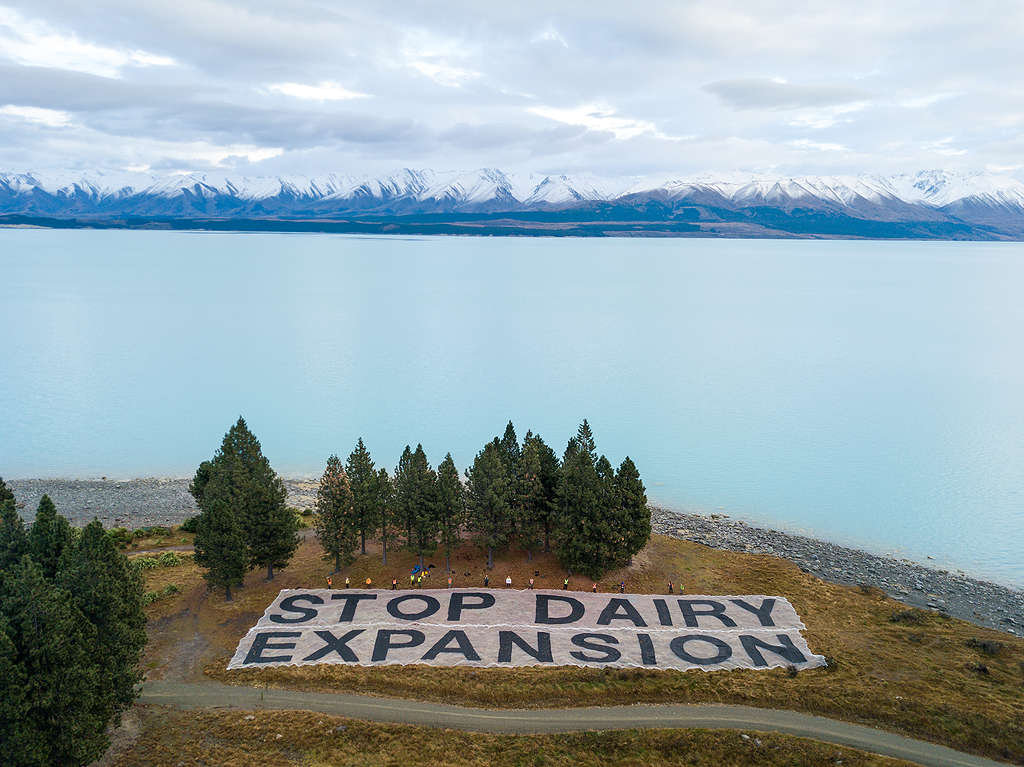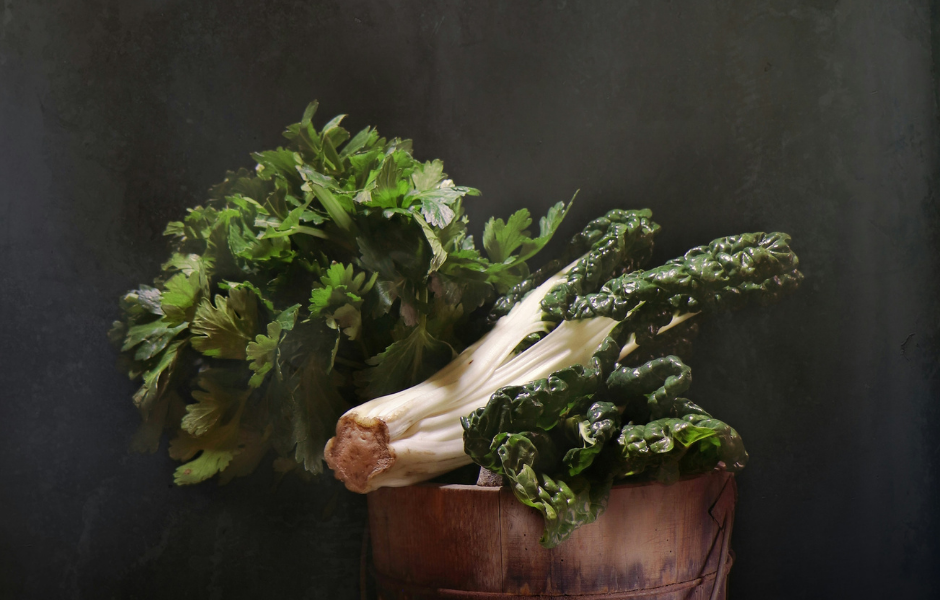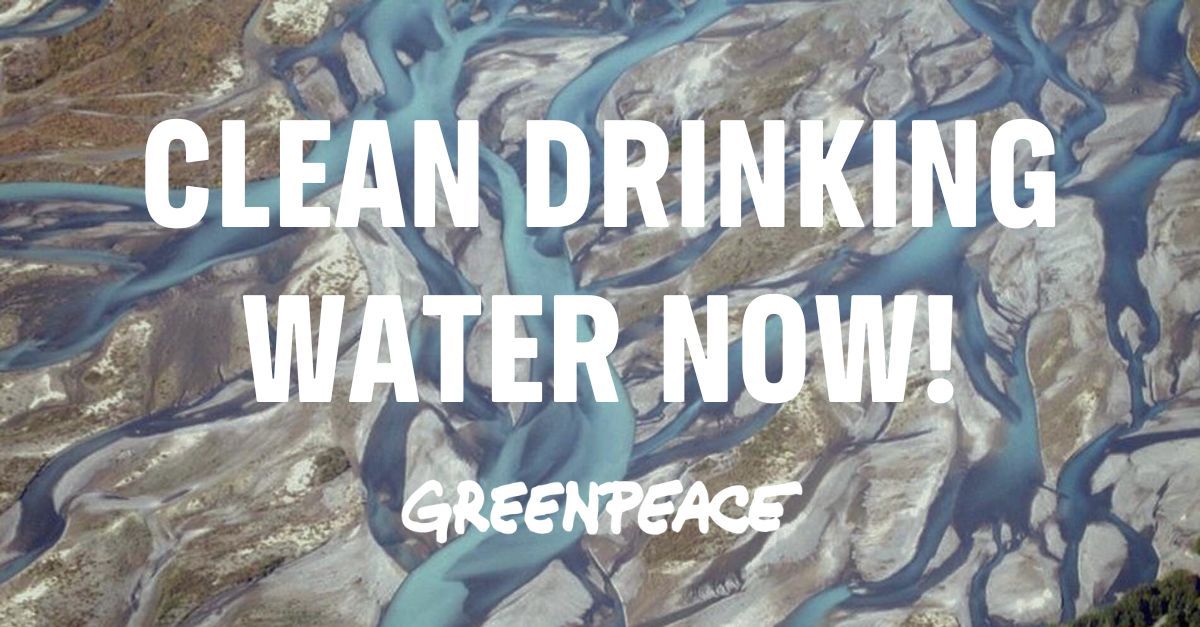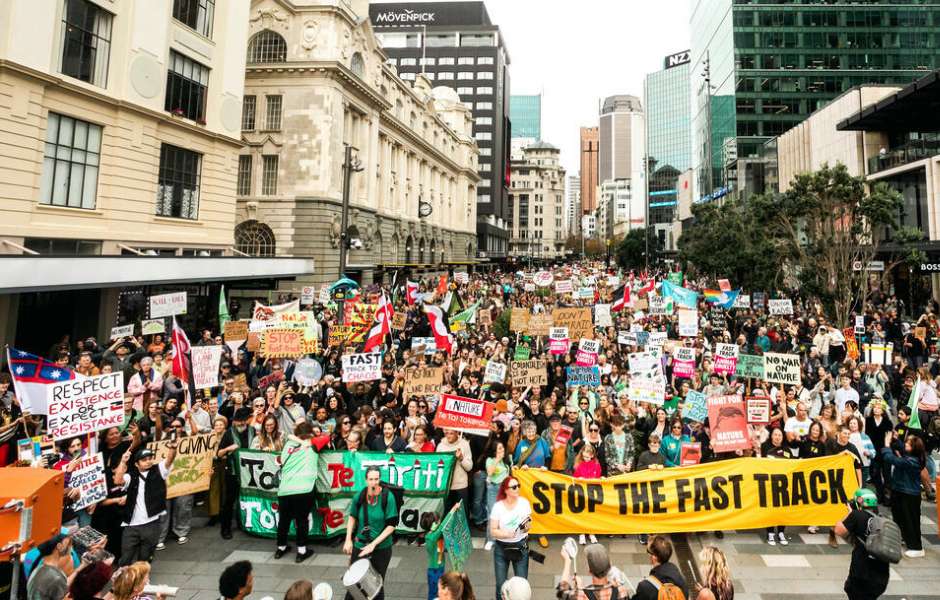As the Greenpeace occupation of a proposed mega farm in the Mackenzie goes into its third hour, activists have laid out a massive message on the tussock.
The giant banner with the words “Stop Dairy Expansion” is 80 by 25 metres – about the size of a rugby field.

45 activists arrived at the site before dawn, in freezing temperatures, some locking themselves onto diggers and trucks. Police have arrived on the scene.
The machinery is being used to excavate tussock land for an irrigation pipeline to serve the huge dairy farm.
“For the sake of the Mackenzie and our rivers, industrial dairy expansion has to stop,” says Greenpeace Sustainable Agriculture Campaigner Gen Toop
Businessman and developer Murray Valentine has permission to create a dairy farm on the southern shores of Lake Pūkaki with up to 15,000 cows under giant pivot irrigators.
The site is home to the native kakī/ black stilt, the world’s rarest wading bird with only 100 left in existence.
“The Mackenzie is a fragile wilderness, home to critically endangered native species, world-renowned landscapes and bright blue glacial lakes. It’s simply not suitable for dairy farming.”
Murray Valentine’s dairy operation is expected to leach tens of thousands of kilograms of nitrate pollution into the Mackenzie’s vulnerable lakes and rivers.”
“Greenpeace isn’t against farming it’s against bad farming, which this is a clear example of.”
“This new mega farm is a shameful example of how the rules there to protect our rivers and our environment from industrial dairying are failing. They are too weak and too loose.”
The Government is re-writing the regulations around freshwater and agricultural pollution. That’s due to be released later this year.
‘’It has the opportunity to protect the Mackenzie and our rivers by tightening the rules and banning new dairy conversions,” says Toop.
Nearly 30,000 people have signed the new Greenpeace petition to ask the Government to do just that.
Greenpeace believes the way forward for farming is through ‘Regenerative Farming’ – working with the environment rather than against it.
ENDS



